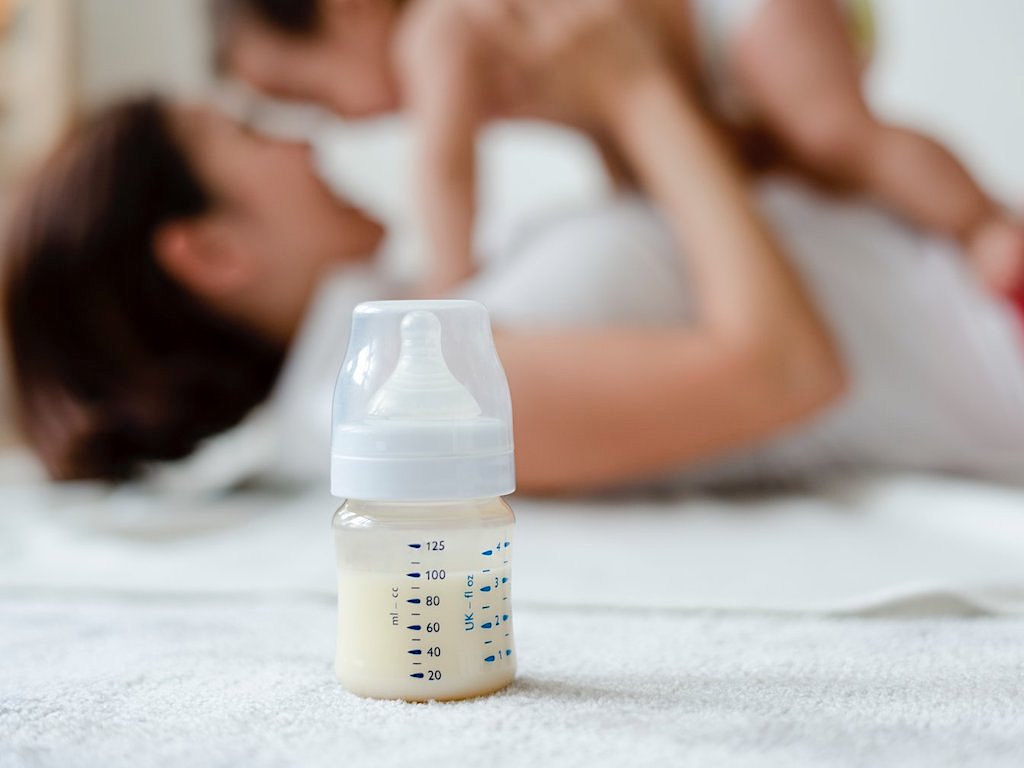3 Mins Read
Singapore startup TurtleTree Labs, the makers of dairy milk without cows, will be launching lab-grown breast milk by 2021. Originally only focused on disrupting the unsustainable dairy farming industry with their lab-grown cow’s milk, the startup is now looking to work with major formula brands to produce human breast milk to have a positive impact on infant nutrition.
Co-founded in 2019 by Fengru Lin, Rabail Toor and Max Rye, Singaporean startup TurtleTree Labs is the world’s first cell-based milk company that utilises biotechnology to manufacture dairy milk products without any cows needed. After announcing their pre-seed funding round in January with investors that include Saudi Prince Khaled bin Alwaleed bin Talal al Saud’s VC firm KBW Ventures and Silicon Valley investors K2 Global, the startup is preparing to debut lab-grown breast milk by 2021 using stem cells from volunteers that will be used to create mammary glands that can lactate. According to the management team, the team is working on securing partnerships with major formula brands to showcase the “closest thing to real mothers’ breast milk”.
In terms of cost, the team believes that they will be able to achieve cell-based human breast milk at a price tag of US$26 per litre by the end of this year, and will debut more details of their technology in April.
While TurtleTree Labs’ initial mission was to use cellular agriculture to recreate the exact composition, functionality and taste of cow’s milk and disrupt the multibillion dollar dairy industry that is a major part of our unsustainable global food system, they later announced that they will also tap into the infant milk formula industry following the completion of their pre-seed funding round in January this year.
Applying their science to recreate human breast milk not only takes aim at the infant milk formula industry that is currently valued at a lucrative US$45 billion, and is set to more than double by 2026, but the startup hopes that their technology will leave a major impact in terms of human infant nutrition.
While current milk formula companies are creating blends using cow’s milk powder, vegetable extracts and many other ingredients, “they have not come close to the nutritional value of real human mothers’ milk,” explained co-founder Rye. Using their proprietary technology to attempt to recreate the composition of human mothers’ milk, their upcoming product will “have the best nutritional value that infants need to develop healthily,” he added.
Their product will be especially valuable for mothers who may not be able to breastfeed for various medical reasons, providing them with a near-equal alternative in terms of matching the health needs of infants. It will also be particularly relevant in Asia, where breastfeeding rates have lagged behind the global average for a host of cultural, medical and socioeconomic reasons. In China, for instance, the rates for exclusive breastfeeding for infants below 6 months stands at 29.2%, well below the international average of 43%.
The advent of cell-based human mother’s breast milk will, in addition, majorly impact breastfeeding in exceptionally difficult circumstances, helping to ensure that all infants meet high-quality nutritional needs. According to the World Health Organisation (WHO), these could include mothers who are HIV-infected, premature infants, and infants living in circumstances such as orphaned babies in foster care and babies born in prisons.
Lead image courtesy of Lactation Labs.



